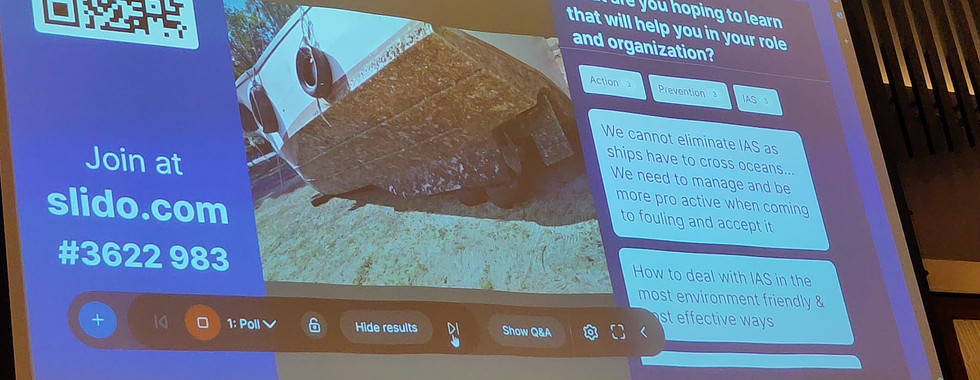Pilot Training on Dry-Dock Operations for Biofouling Management
- Jurga Šaulė
- Jun 4, 2024
- 2 min read
Updated: Jun 7, 2024
To assist International Maritime Organization (IMO) Member States new training package has been developed under the GloFouling Partnerships project, building on a previously developed and delivered course on the development of Biofouling Management Plans (BFMPs) and Biofouling Management Record Books (BFRBs). This is the third training course developed under the project, the latest one focusing on dry-dock operations for biofouling management. The objective of the training is to provide attendees with an understanding of the different aspects related to dry-dock operations for biofouling prevention and management, in line with the IMO Biofouling Guidelines and the relevant requirements, taking into account lessons learnt from experience accumulated worldwide.

To ensure the course is designed to share best practices a pilot training course was delivered in Mauritius (one of twelve lead partnership countries of the project) from 27-28 June 2024. A one and a half day course was delivered in cooperation with the Ministry of Blue Economy, Marine Resources, Fisheries and Shipping (Shipping division), followed by a half day site visit to two dry-docks in Port Louis. The site visit gave the opportunity for the trainers to illustrate in person some of the key aspects discussed during the course and allowed the participants to gain appreciation for the scale of work.
The training was well attended with over 50 participants representing the government of Mauritius (particularly from the maritime administration, environmental or biosecurity agencies and port state control), managers and employees of shipping companies, port and dry-dock operatives, paint manufacturers and academics from the Mauritius Oceanography Institute.
To support the delivery and further development of the training Will Griffiths, the Technical Project Analyst of GloFouling Partnerships project has attended the delivery of the training. The feedback gained from the participants was very positive with participants stating that they felt they would use information in their roles in the future.
Upon successful delivery of the pilot training in Mauritius, GloFouling Partnerships will now deploy the training in the remaining eleven of its lead partnering countries during the remaining year 2024.
GloFouling Partnerships is also developing publications outlining biofouling management in dry-dock operations, and recommendations for the development and evaluation of Biofouling Management Plans and Biofouling Record Books, which will be published in due course here.
An example of a fouled recreational vessel in dry-dock before cleaning operations.
































Comments